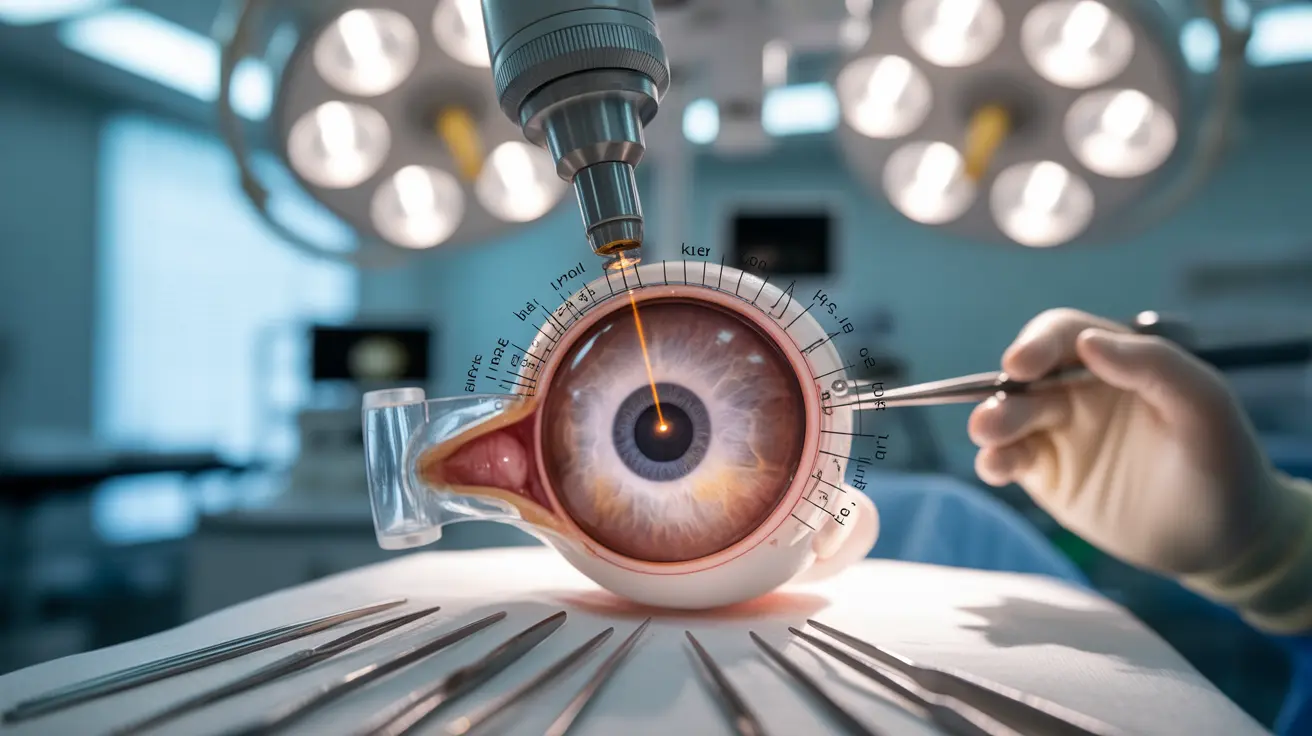If you're living with farsightedness (hyperopia), you may be considering surgical options to improve your vision and reduce dependency on glasses or contact lenses. Modern eye surgery for farsightedness offers several effective procedures that can help you achieve clearer vision and enhance your quality of life.
In this comprehensive guide, we'll explore the various surgical options available, their benefits and limitations, and what you can expect during the treatment process. Understanding these options will help you make an informed decision about the best procedure for your specific situation.
Available Surgical Procedures for Farsightedness
Several surgical procedures have been developed to correct farsightedness, each with its own advantages and considerations:
LASIK Surgery
LASIK (Laser-Assisted In Situ Keratomileusis) is one of the most popular options for correcting farsightedness. During this procedure, a surgeon creates a thin flap in the cornea and uses a laser to reshape the underlying tissue, correcting the refractive error that causes farsighted vision.
PRK (Photorefractive Keratectomy)
PRK is an alternative to LASIK that may be more suitable for certain patients. Instead of creating a corneal flap, the surgeon removes the outer layer of the cornea entirely before reshaping the underlying tissue. While recovery takes longer than LASIK, PRK can be safer for those with thin corneas.
Refractive Lens Exchange (RLE)
This procedure involves replacing your eye's natural lens with an artificial intraocular lens (IOL). RLE is particularly beneficial for older adults with farsightedness and early signs of cataracts.
Choosing the Right Procedure
Several factors influence which surgical procedure might be best for you:
- Your age and overall eye health
- The severity of your farsightedness
- Corneal thickness and shape
- Presence of other eye conditions
- Lifestyle and visual demands
Recovery and Aftercare
Recovery times and experiences vary depending on the chosen procedure:
Post-LASIK Recovery
Most patients experience improved vision within 24 hours after LASIK, with complete healing occurring over several weeks. Initial discomfort is typically minimal, and many people return to work within a few days.
PRK Recovery Period
PRK recovery takes longer than LASIK, usually requiring 3-5 days for initial healing and several weeks for vision to stabilize. Patients may experience more discomfort during the early healing phase.
RLE Recovery Timeline
Recovery from RLE typically takes 1-2 weeks, with vision improving gradually during this period. Full stabilization may take several weeks to a month.
Frequently Asked Questions
What types of eye surgery are available to correct farsightedness?
The main surgical options for farsightedness include LASIK, PRK, and Refractive Lens Exchange (RLE). Each procedure uses different techniques to correct vision, with LASIK and PRK reshaping the cornea, while RLE replaces the natural lens.
How do LASIK and PRK differ in treating farsightedness, and which one is better for me?
LASIK creates a corneal flap before reshaping the tissue, while PRK removes the outer corneal layer completely. LASIK offers faster recovery, but PRK may be safer for thin corneas. The best option depends on your specific eye characteristics and health conditions.
What is refractive lens exchange and when is it recommended for farsightedness?
Refractive lens exchange involves replacing your natural lens with an artificial one. It's typically recommended for older adults with farsightedness, especially those who may also have early cataracts or who aren't good candidates for laser procedures.
What can I expect during recovery after laser eye surgery for farsightedness?
Recovery varies by procedure. LASIK patients often see improvement within 24 hours, while PRK recovery takes several days to weeks. You may experience temporary discomfort, light sensitivity, and fluctuating vision during the healing process.
Are the results of eye surgery for farsightedness permanent, and what are the risks involved?
Results are generally long-lasting, but natural age-related vision changes may still occur. Risks include dry eye, night vision problems, under or over-correction, and rare complications like infection. However, serious complications are uncommon when performed by experienced surgeons.
Consulting with an experienced eye surgeon is crucial for determining which procedure best suits your specific needs and understanding all potential risks and benefits.




